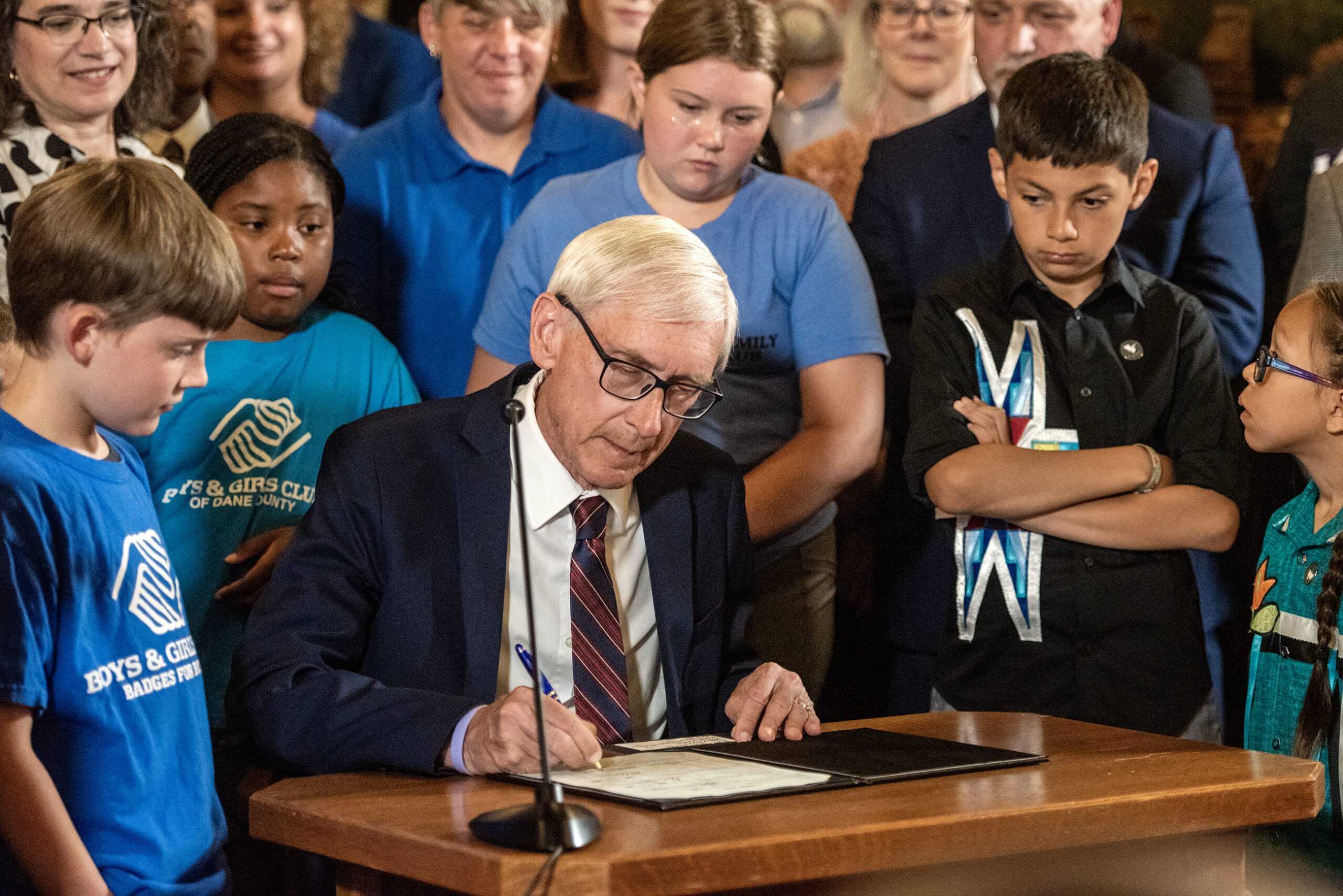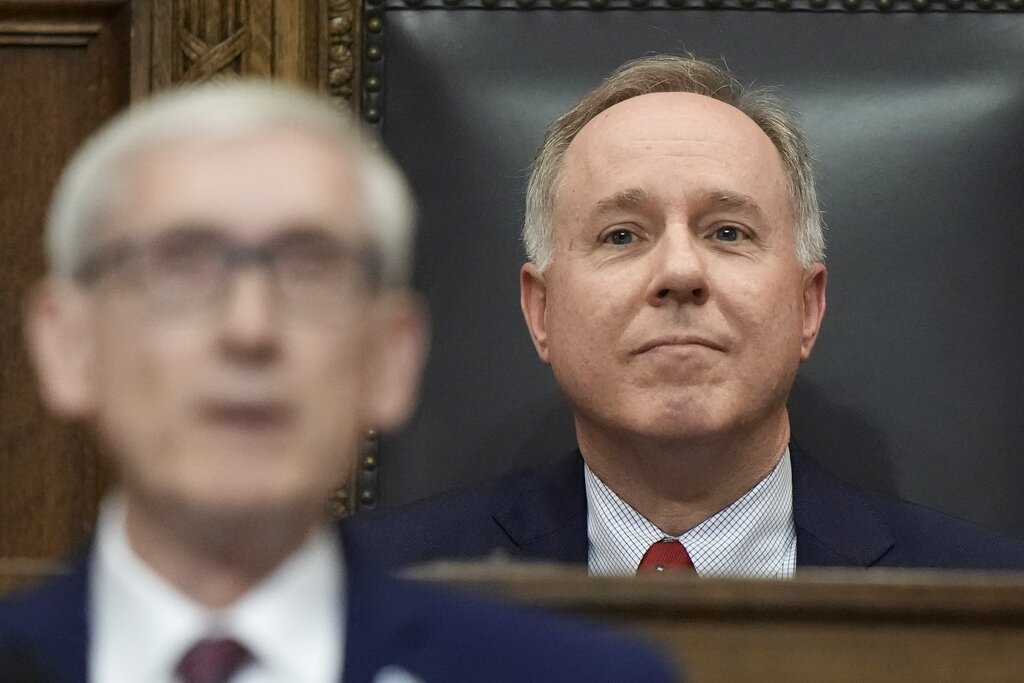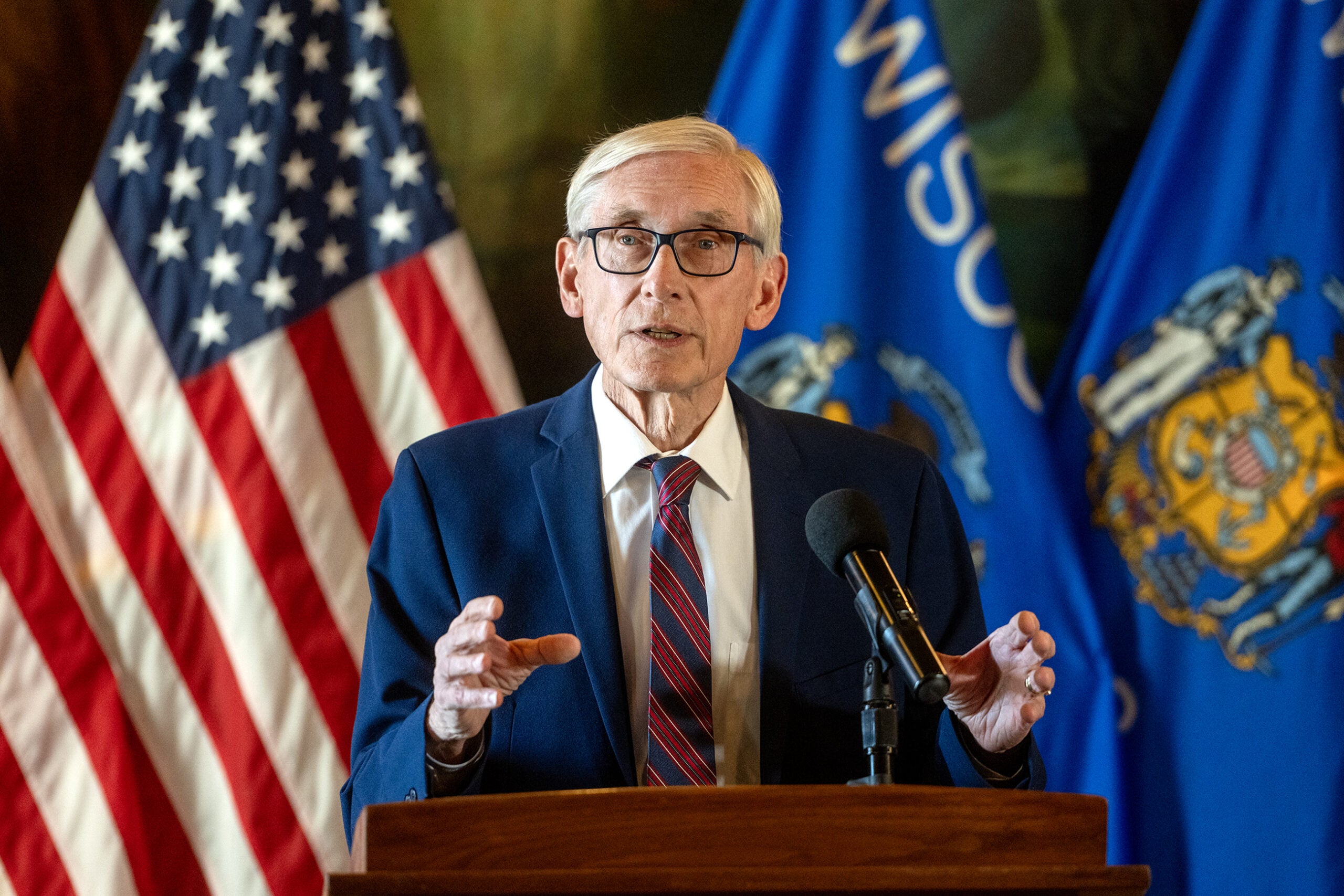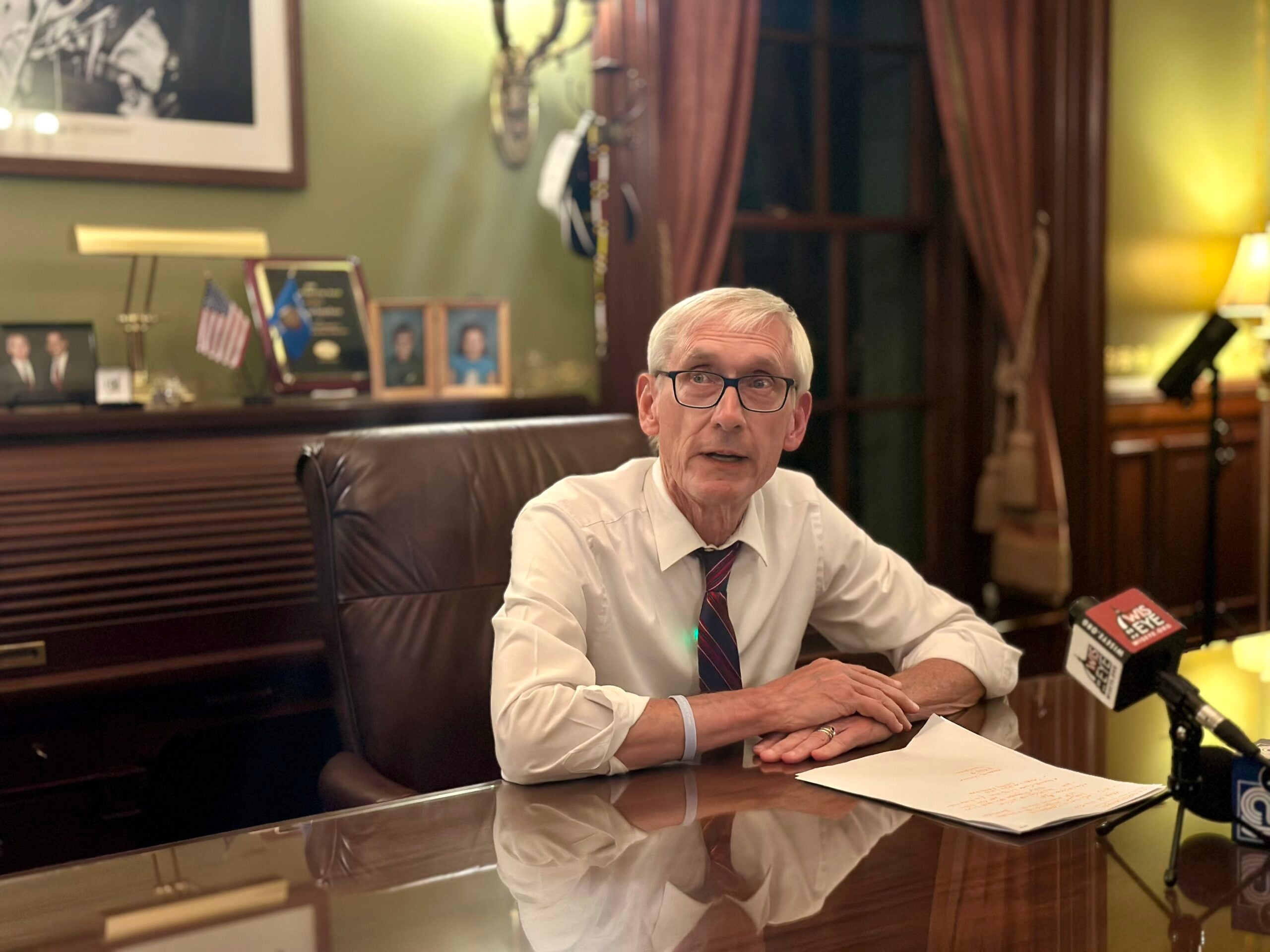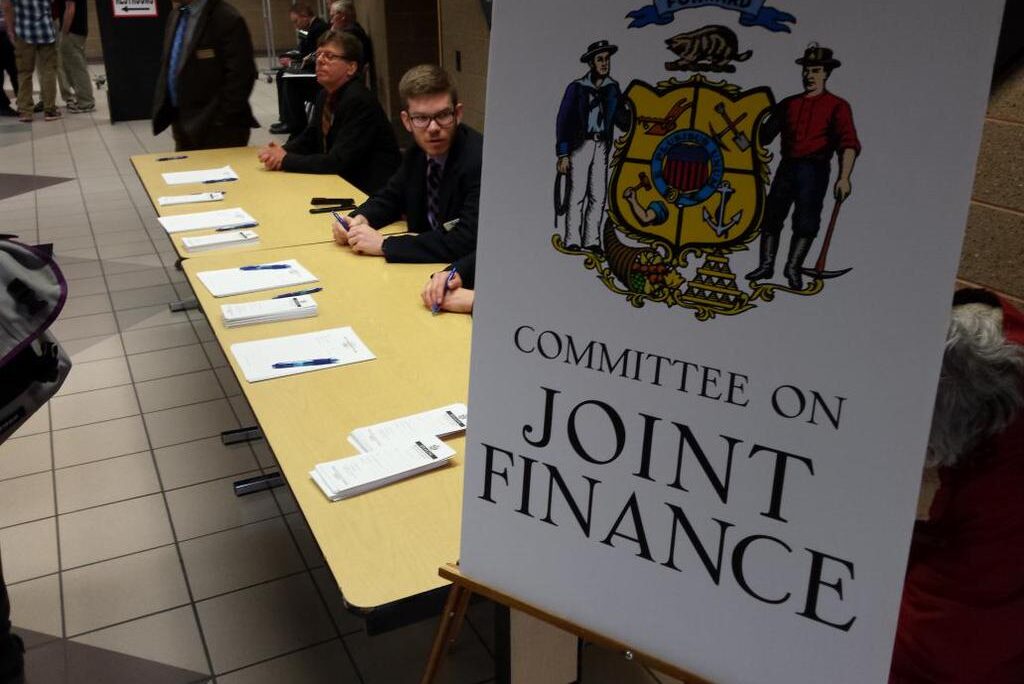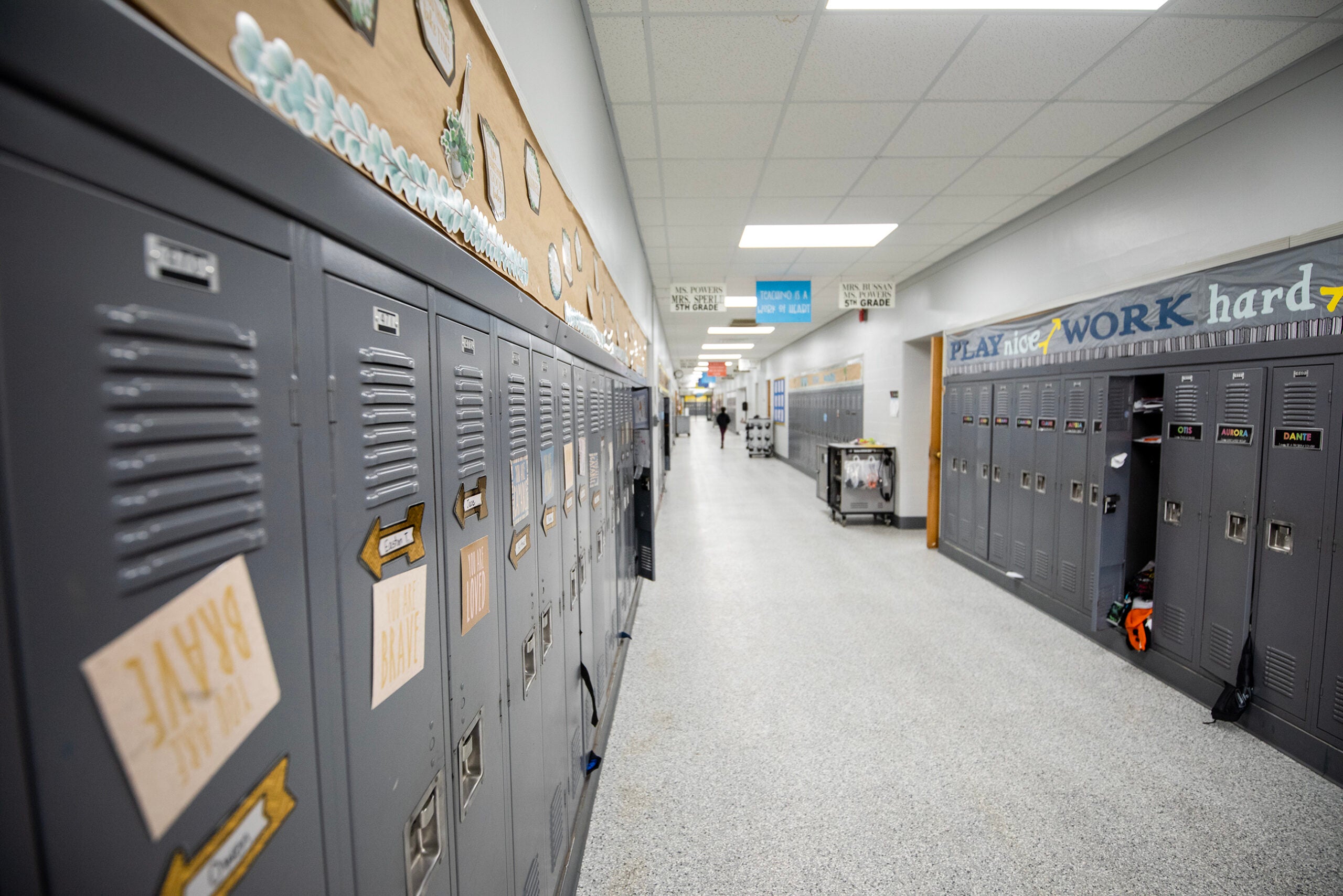Gov. Tony Evers has signed a Republican-drafted state budget that includes income tax cuts for most residents and a major increase in funding for K-12 education, more state aid to local governments and workforce housing. With his powerful veto pen, Evers spared 188 UW System diversity, equity and inclusion staff positions from elimination and eliminated tax cuts for the state’s two highest income brackets.
During a packed budget signing ceremony, Evers applauded investments for K-12 schools, transportation, broadband, workforce housing and PFAS contamination.
Schools will get an additional $325 per student in each of the next two fiscal years under the budget approved by Republicans. In a surprise move, Evers used his line-item veto to give school districts the ability to collect an additional $325 per student annually for the next 402 years.
News with a little more humanity
WPR’s “Wisconsin Today” newsletter keeps you connected to the state you love without feeling overwhelmed. No paywall. No agenda. No corporate filter.
Before signing the budget, Evers chided Republican state lawmakers, who he claims “failed to meet this historic moment” at a time when the state has a record budget surplus.
“They sent the budget back to my desk without making critical investments in key areas that they know and have acknowledged are essential to the success of our state,” Evers said. “And they did so while providing no real justifications, any kind of substantive debate or any meaningful alternative. That decision is, to put it simply, an abdication of duty.”
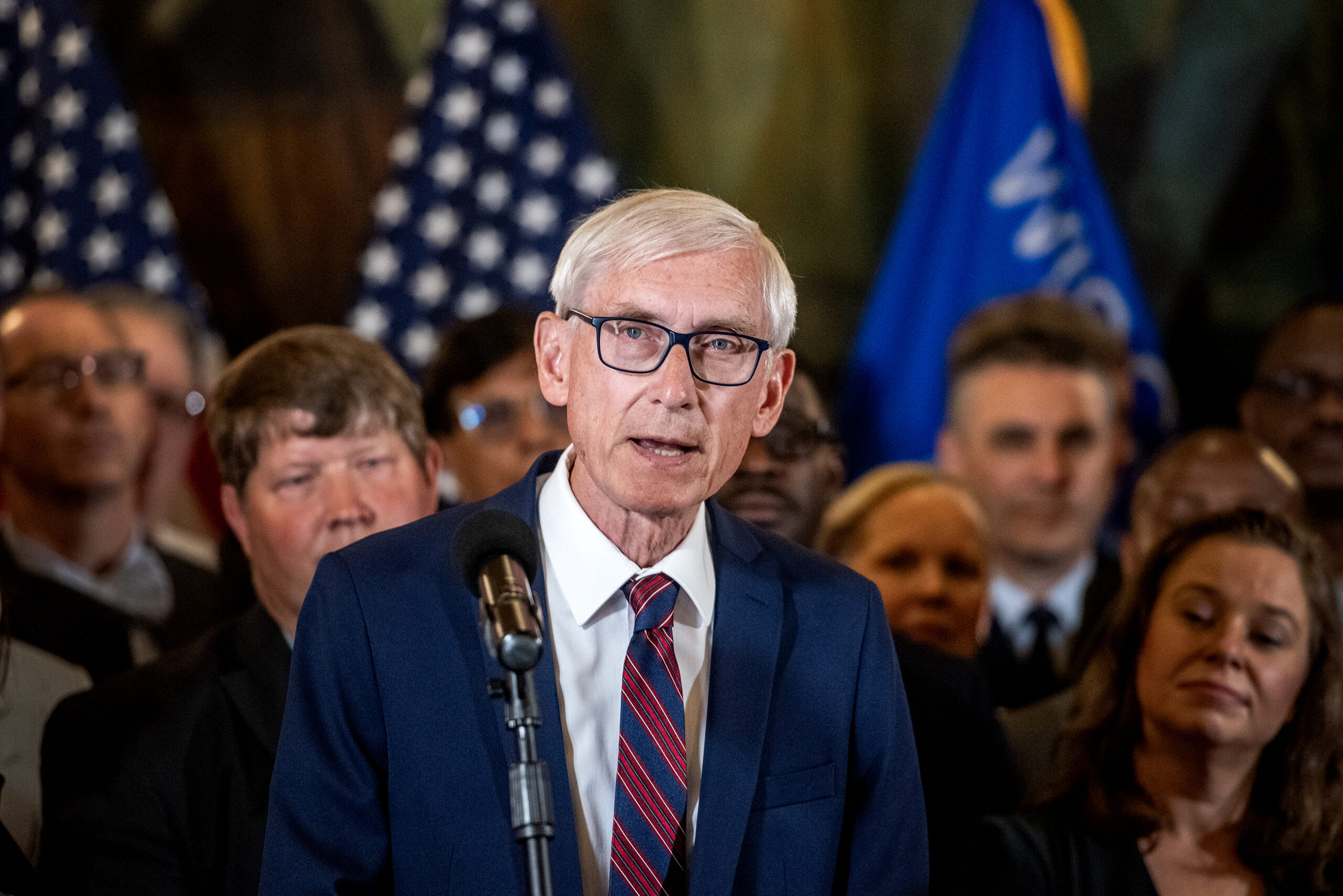
Evers’ original budget proposal called for using much of the state’s projected $7 billion surplus to provide an additional $2.6 billion for state public schools and $244 million for a new paid family and medical leave program for public and private workers. Other funding initiatives included new money for roads, lead pipe replacement and the Milwaukee Brewer’s stadium.
GOP legislators had a different vision.
Last week, the Republican-controlled Senate and Assembly approved their own budget, which aimed to cut income taxes by $3.5 billion across all brackets, including the state’s wealthiest residents.
Evers vetoed the proposed cuts for the state’s top two income tax brackets while preserving the cuts to the bottom.
“Using my broad veto authority, I’m doing what I can to ensure that tax relief goes to working families who need help affording rising costs, not the wealthiest taxpayers in Wisconsin,” Evers said.
In a tweet Wednesday, State Assembly Speaker Robin Vos, R-Rochester, said he was disappointed by Evers’ vetoes, specifically as they relate to tax cuts, K-12 funding and DEI.
“Vetoing tax cuts on the top two brackets provides hardly any tax relief for truly middle-class families,” Vos said. “His decision also creates another economic disadvantage for Wisconsin, leaving our top bracket higher than most of our neighboring states, including Illinois.”
The GOP version of the budget also included a $32 million cut to the UW System budget and a reduction of 188 positions aimed at eliminating programming related to diversity, equity and inclusion at the state’s 13 universities.
Evers’ veto leaves those positions intact. He said the budget still provides “an opportunity for the UW System to retain the $32 million in this final budget.”
“I also want to be clear,” Evers said, “the Republicans’ decision to prolong their decade-long war on higher education by failing to provide meaningful investments in our University of Wisconsin System and our technical colleges is shortsighted, misguided and wrong for the workforce, wrong for our economy and our state.”
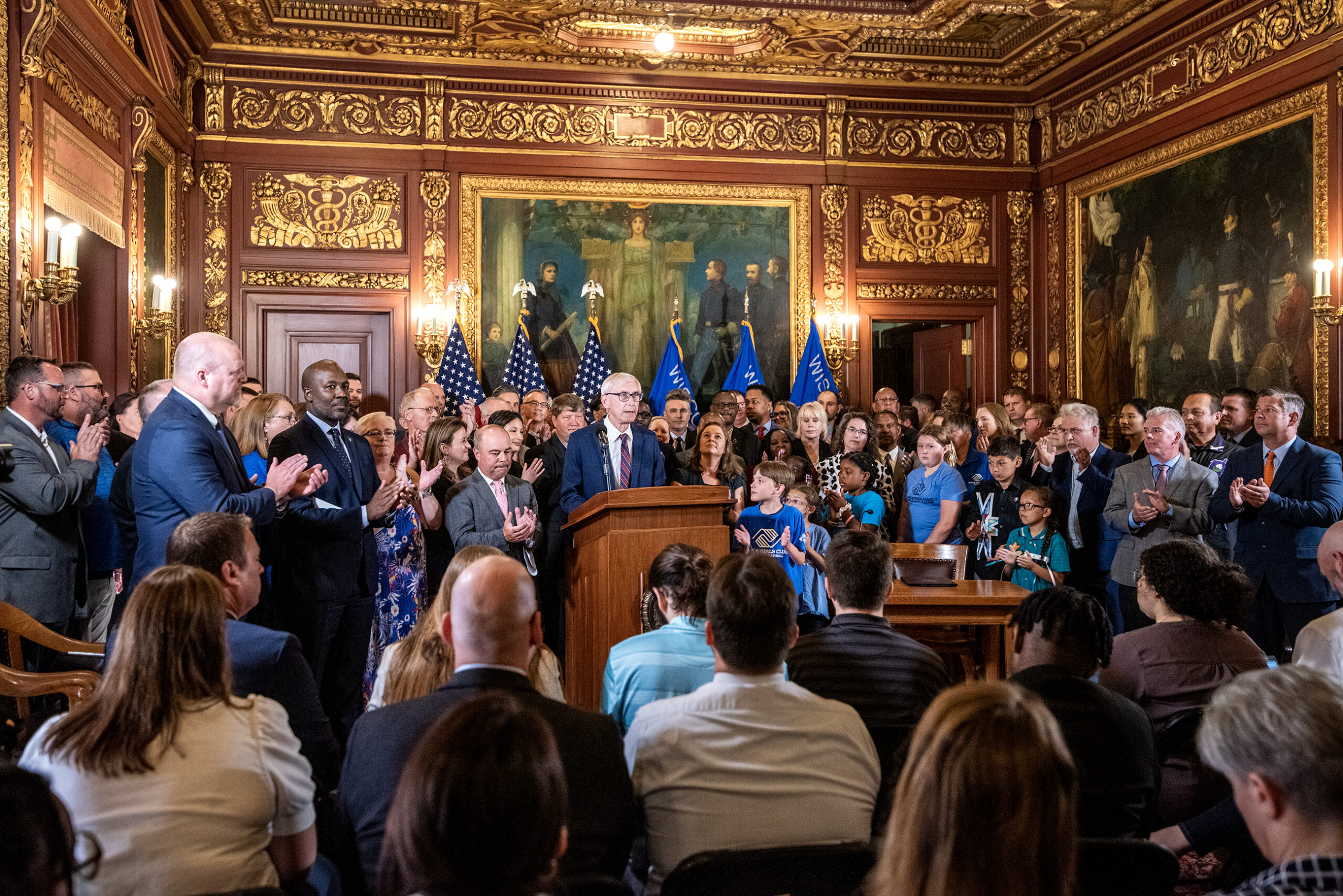
Vos also pushed back on Evers reinstating DEI positions on college campuses.
“Contrary to Governor Evers’ statements, Republicans are not waging a war AGAINST higher education,” Vos said. “We are waging a war FOR higher education by signaling that well-balanced instruction and merit-based advancement should be the foundation of earning a degree.”
A statement from UW System spokesperson Mark Pitsch thanked Evers “for his continued support of education in Wisconsin.”
“Supporting student success through state support of affordability and access will continue to be a priority of the UW System as we work with the Executive and Legislative branches,” Pitsch said. “We know that Wisconsin is in a war for talent, and investing in the development of talent is key to our economic vibrancy. Together, we have a lot of work yet to do.”
Under the state budget approved by Republicans and signed by Evers, state employees will receive a 4 percent pay increase on July 1 and another 2 percent raise in 2024. Wages for guards at state prisons will increase to $33 an hour.
Some liberals in Wisconsin encouraged Evers to veto the entire state budget because of cuts to the UW System and child care subsidies. Shortly after the budget was signed, Sen. Chris Larson, D-Milwaukee, tweeted that he was disappointed to see Evers “abandon his veto threat and sign the Republican budget today.”
“His supporters, myself among them, fought hard to get him re-elected and it is frustrating to see so many of our priorities, especially on public ed, dismissed. Again,” Larson said.
Evers said vetoing the entire budget would mean abandoning priorities he’s spent four years advocating for. The governor said that would leave historic increases in K-12 education funding on the table along with $125 million to address groundwater contamination from PFAS chemicals.
“It would mean forfeiting one of the largest investments in state history in workforce housing, a $525 million investment in expanding access to affordable housing statewide, which is a critical starting point,” Evers said. “And it would mean turning our back on our justice system workforce, our state workforce, our tourism industry, our farmers and producers, and our veterans, among others.”
Editor’s note: Wisconsin Public Radio is a service of the University of Wisconsin-Madison and the Wisconsin Educational Communications Board. This story will be updated.
Wisconsin Public Radio, © Copyright 2026, Board of Regents of the University of Wisconsin System and Wisconsin Educational Communications Board.

